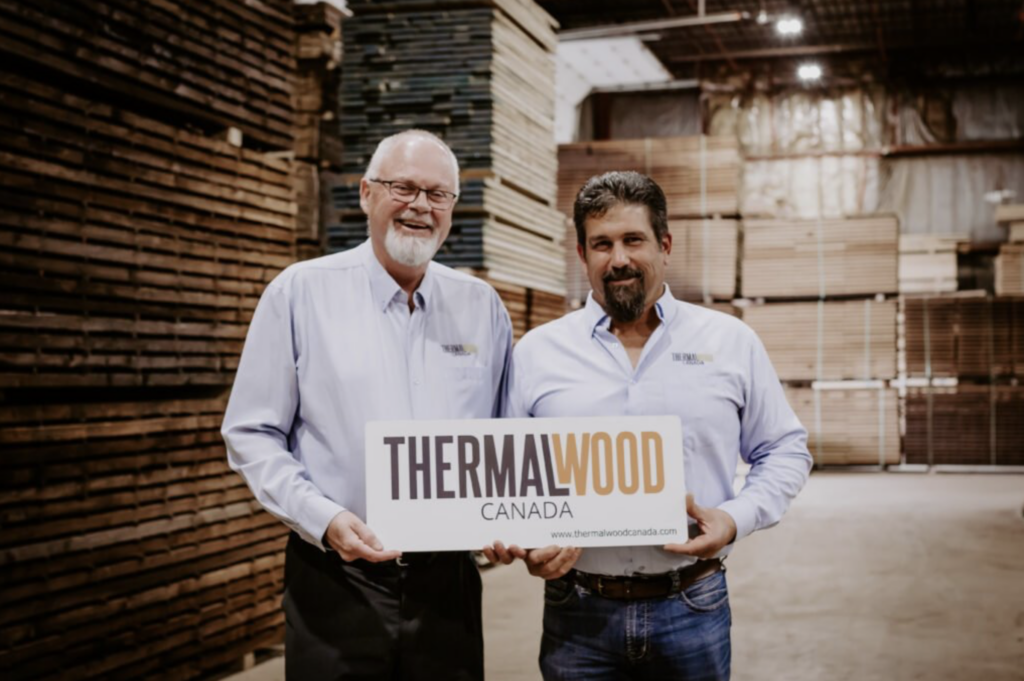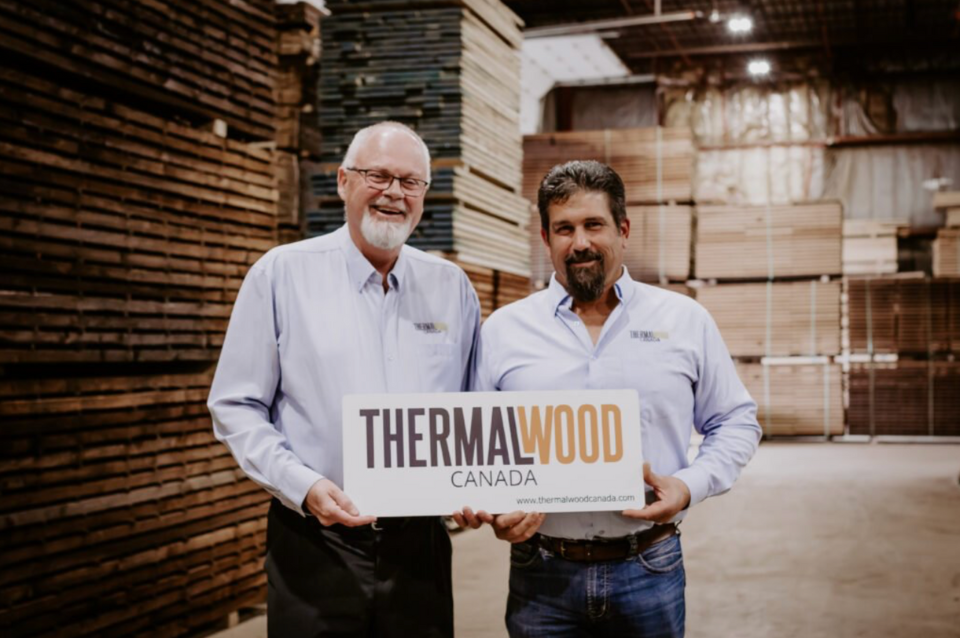ThermalWood Canada’s Plan To Grow While Shrinking Their Carbon Footprint
ThermalWood Canada is rolling out a multi-phase expansion program that will allow the company to enter new markets, while planting more prominent seeds in existing ones.
The expansion is exciting, because, as many business owners will tell you, growth is a sure sign of success. With ThermalWood Canada, bigger means greener.
Phase 1 of the expansion program will involve an extension on the building, providing more room for raw materials as they come in. The second part of this phase will be the purchase of a smaller kiln to help service the music industry in a more efficient manner.
“We have a substantial customer that fills the oven up monthly with guitar necks,” says President of ThermalWood Canada, Bob Lennon. “We have all of our eggs in the same basket. If there’s a hiccup with the big order, then the smaller orders can’t get filled due to the size of our present kiln. It can be difficult to service small volume orders.”
The smaller oven will allow customers in the music industry to have their orders fulfilled as soon as they’re placed, rather than be at the mercy of the larger volume clients.
A small kiln will also allow ThermalWood Canada to enter a market that’s very important to them. Which is the urban economy market.
With wildfires rampant on the west coast of Canada and the U.S, among other heavily wooded zones, the question of how to prevent these fires in urban environments frequently arises. The answer is often to cut down trees in these areas, which leads to landfills filling up, further increasing the output of Co2 into the atmosphere.
What ThermalWood Canada can do is potentially eliminate a portion of this waste by torrefying these urban woods, creating a new sustainable market. One which wouldn’t be possible without the addition of a smaller kiln.

To continue on their rigorous path of zero waste, ThermalWood Canada will also acquire a biomass burner, providing heat throughout the entire shop through the use of waste material.
“Our aspirations are to take our dust, press it together and make briquettes. We can use this for heat and potentially sell them as well,” says Bob Lennon. “We already have end cuts and strips that are being turned into mulch, and smoker chips. Any waste materials will be turned into a valuable product.”
If all of this isn’t exciting enough, phase 2 will center on the acquisition of another large kiln, the same size as the current one. This will mainly be to help accommodate the expansion of the Obsidian Ebony line.
It’s no secret that Obsidian Ebony was created for a couple of viable reasons. One, to help provide a worthy alternative for the exotic woods used in instrument making, and two, to be an environmentally conscious choice that helps alleviate the large carbon footprint brought on by deforestation, and the many modes of transportation required to get the wood into the hands of the buyer.
Old growth woods are more dense, which is needed in the instrument trade. However, it is detrimental to the environment. The thermal modification process adds density, creating a product that will allow a different species of wood to go untouched, without losing the quality that these makers have grown accustomed to.
“The addition of the second large kiln will not only allow us to get a market share with smaller luthiers. It will allow them to take their craft and bring it up a notch,” says Bob Lennon.
“We’re growing! And there are all kinds of indicators that are saying our path of growth is going to continue.”
These are exciting times at ThermalWood Canada.
We want to thank Bob Lennon for being this week’s guest on The Northern Heat Report, the program that he created, and the place you come to listen to the stories that have not yet been discovered.

